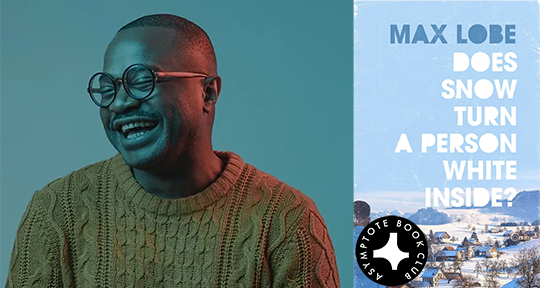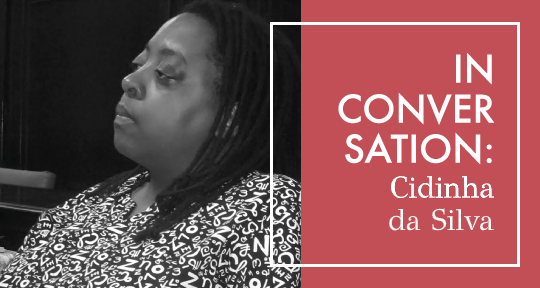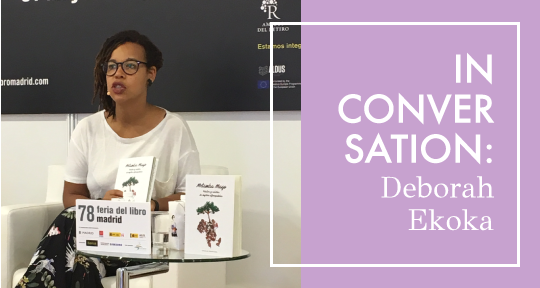I first met Cidinha da Silva about a year ago, at the International Literary Festival of Paraty (Flip), in the state of Rio de Janeiro, Brazil. At the time, I had just begun translating Sobre-viventes! (Pallas Editora, 2016), a collection of crônicas that approach Brazil, past and present, through everyday lived experience. In 2010, Cidinha coined the neologism Exuzilhar, a verb that combines the Portuguese encruzilhar (“to cross”) or encruzilhada (“crossroads”) with Exu (an Orisha in the Yoruba religion, the divine messenger or gatekeeper). Exuzilhamento is indeed a driving force of Cidinha’s work, which, as she reveals here, “revolves around Africanities, Orixalities, Ancestralities, and the tension and dialogue between tradition (African, Afro-Brazilian, Afro-Diasporic, and Afro-Indigenous) and contemporaneity.” The interview that follows, conducted alongside my fellow translator Ana Luiza de Oliveira e Silva, showcases the complexity of Cidinha’s creative process and her critical place in contemporary Brazilian literature.
—Daniel Persia, Editor-at-Large for Brazil
Daniel Persia (DP): It’s great to connect with you again, Cidinha, especially after having featured some of your work in our Summer 2020 issue. Can you give us a general panorama of your career as a writer?
Cidinha da Silva (CS): I started publishing literature in 2006, in São Paulo, with a self-financed, independent book of crônicas, Cada tridente em seu lugar. It’s a book that still sells widely, fourteen years later. The fourth edition was just released, with Mazza Edições (Belo Horizonte, Brazil). I had always wanted to publish literature. I wrote crônicas for an online magazine and readers kept asking when we’d have a book. That’s what really got me thinking about publishing my first literary work; I had already published a book of essays in 2003, Ações afirmativas em educação—experiências brasileiras [Affirmative Action in Education: Brazilian Experiences] (Summus).
Ana Luiza de Oliveira e Silva (AO): Tell us about your creative process. Do you have a daily writing routine?
CS: My writing process has practical, creative, and other dimensions that are somewhat intangible. In practical terms, I’m a relatively organized and disciplined writer; I sit and write at predetermined times. I don’t have any problems with the “blank page,” but sometimes I’m faced with a lack of time to write. My writing routine depends on the volume of work at hand, on how much I need to accomplish to ensure survival: lesson planning; preparing and delivering lectures, workshops, and courses; reading; studying; traveling; keeping up with my online store and promoting my books. The time left for writing is very minimal, it boils down to just a few hours a week. I write very little on impulse; I usually write with a particular book in mind, one that I’m still developing or organizing. I also write a lot of commissioned work, for publications of the national press, primarily, but also theatre and essays.
As for the creative dimension, I prefer to write early in the morning, which is the best time of day for me. I write on my desktop computer, sitting in a comfortable chair in a large office, with a glass door on the balcony and the sun coming to visit me. I collect dictionaries and keep them in reach for consultation. My productivity is greatest in the morning, for about four to six hours (when I’m in a more intense process of production), but from the fourth hour onward, what I really do is reread, revise, consult reference materials. I read everything out loud, several times; that’s how I set rhythm and establish harmony. When I’m mulling over an idea for a new book, I tend to take a lot of notes in my notebooks—scattered things, like names for characters, beginnings of crônicas or short stories. I usually only write down ideas, but when I write down full sentences, they almost always unfold into one or two paragraphs at that very moment, when they’re first being recorded. And so there you have the beginning of a new text.
The unimaginable happens in dreams (of which I remember little or nothing), in conversations, in exchanges with real people, in observing the world, in interacting with stones, plants, flowers, water, earth and fire, and smoke, too. In intuition, which I’ve built over the years, in exercises and life tests, to pay full attention and remain confident. Spirituality communicates with me through intuition.
DP: What are some of the main themes in your work?
CS: Through two of my more recent books—Um Exu em Nova York (2018), a collection of short stories, and Exuzilhar (2019), the first volume in a series of selected crônicas—I’ve come to understand that my aesthetic interests revolve around Africanities, Orixalities, Ancestralities, and the tension and dialogue between tradition (African, Afro-Brazilian, Afro-Diasporic, and Afro-Indigenous) and contemporaneity. Other topics include racism, racial discrimination, and racial inequalities, though the central theme really is that tension and dialogue mentioned above. I’m also interested in themes of death, love, soccer, and politics. I write a lot about politics. READ MORE…




